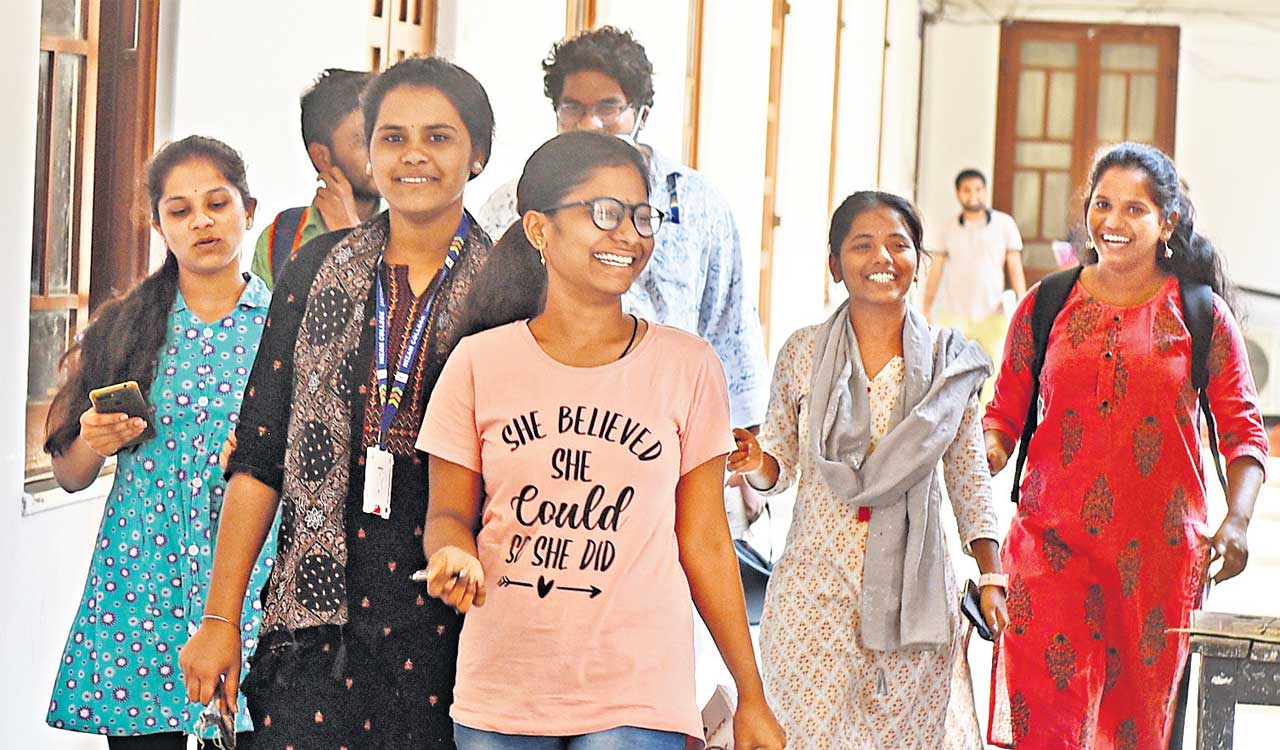Ladies constitute 74% of enrolment into PG courses
Published Date – 11:44 PM, Wed – 29 November 23

This year’s CPGET data shows that 15,018 women took admissions in various programmes.
Hyderabad: Women continue to leave men miles behind when it comes to pursuing higher studies in Telangana. In fact, this year, women in post graduate classes will be around three times more than men.
This year’s Common Post Graduate Entrance Test (CPGET) data shows that 15,018 women took admissions in various programmes, which is nearly thrice the number of men. Out of total 20,353 enrolment for the academic year 2023-24, women constitute nearly 74 per cent while men students account for only 5,335 i.e., 26 per cent. There were a total of 47,286 seats in various postgraduate programmes available for admissions via the web-based counselling.
The last year’s data presents a similar picture with 72.26 per cent out of 19,121 enrolments in PG courses being women. Incidentally, enrolment of both men and women has gone up considerably this year. The total number of admissions increased from 19,121, including 5,083 men and 14,038 women in 2022 to 20,353 admissions now.
This year, the web counselling was done for admissions to 50 different postgraduate and postgraduate diploma courses offered by Osmania University, Kakatiya University, Telangana University, Mahatma Gandhi University, Palamuru University, Satavahana University, Telangana Mahila Vishwa Vidyalayam and Jawaharlal Nehru Technological University-Hyderabad. Except for a few programmes, women dominated enrolment in almost all courses, including MSc Zoology, Chemistry, Mathematics, Statistics, Computer Science and MA Psychology.
Similar trend has been witnessed in this year’s undergraduate conventional degree courses admissions. Out of 2,04,674 students who got admissions through the Degree Online Services Telangana (DOST) 2023, 53 per cent were women, while men enrolment stood at 47 per cent.
Officials attributed the increase in women enrolment both in undergraduate and postgraduate courses to the setting up of government welfare residential degree colleges. Out of 85 welfare residential degree colleges, nearly 50 are for women. They also attributed to awareness among the family members to send girls for higher education.


